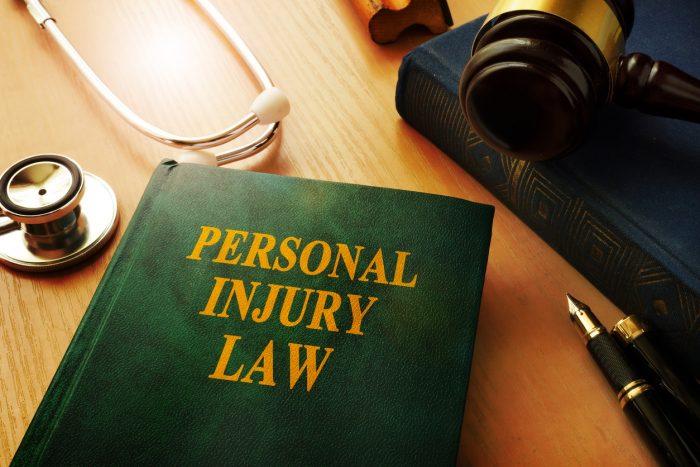
A personal injury lawsuit is a civil right that citizens can pursue to mitigate injury and damages brought about by negligence by another party. Most personal injury cases usually are settled before they reach the official judicial system. However, Bclawoffices can guide you through the process and give you the right advice when you most need it.
Which Are the Grounds for a Personal Injury Lawsuit?

Accidents represent more than 90% of the personal injury cases discussed in courthouses. These accidents may happen on private or public properties. That makes homeowners or business owners liable for recovering the damage of the person being injured. Road accidents, slip, fall accidents, domestic animal assaults, and bites, and other kinds of accidents could all be eligible personal injury cases that can proceed into a lawsuit.
You could also file a personal injury lawsuit against a person that has hurt you on purpose. Such cases also have a punitive part other than the civil one, mostly examined in front of the audience. Proving the guilt of the person that has intentionally assaulted you and caused your injuries can lead to his imprisonment. You may also ask for a full financial recovery for your medical bills, wage losses, and permanent impairment.
Another interesting personal injury claim recently seen in courthouses around the country would be consuming products with severe harmful agents. As a consumer, you have every right to sue any liable party (from the grocery store to the manufacturing company) for your damages induced by the consumption of a defective product. That also applies to devices you have bought to serve your daily needs, and you ended up with severe injuries when you used them. Your lawyer must show a direct relation of your injuries to the consumption or use of a certain device and file a lawsuit against all the liable parties for your recovery.

A personal ethical injury can happen when another party spreads rumors for you online, which may harm your public image. You can sue the persons or entities that have contributed to your defamation and ask for the right monetary recovery for all statements that have proven to be false in the court of law.
Today, it’s easy to have such personal injury claims, especially when people hide behind the anonymity of the internet and social media. It’s easy for your lawyer to ask the experts to find the digital traces of the people who have spread rumors for you online and bring them to the court of law. After all, hurting another person’s reputation through false information is something that could permanently damage the image of the person. That’s why the law is strict with such situations and constantly looks at ways to battle them.
The Attorney’s Role in a Personal Injury Lawsuit

Your attorney is a valuable partner and mentor to guide you through the personal injury lawsuit procedures. When hiring a lawyer, you know you have found a place where legal teams work side by side with other investigators who can build your case in the courthouse. A lawyer is responsible for gathering all missing evidence from your accident scene. Then he can find a way to link this evidence with gross negligence from the other party. That’s the person or entity you should sue for your damages.
Filing the paperwork to the relevant Police and judicial authorities would be impossible if you are on your own. Lawyers know when to file for reports and lawsuit affidavits to the right courthouse so that your case can be examined. They receive your authorization to process your case and have access to your medical records, interviewing doctors to determine if your health levels have deteriorated due to the accident.
If the other party wants to resolve your injury claim out of the court system, then your lawyer is the right person to conduct such a negotiation. It is usual for insurance companies to participate in such negotiation meetings with their lawyers. Your lawyer can help you reach the right settlement with the other party that will fully satisfy you and recovers your damages.

Even when there are disputes about the damage recovery, your personal injury lawyer could resolve it through the lawsuit. Courts have direct orders and know how to deal with such cases. There are caps and indexes concerning the height of the recovery, you may claim. Your lawyer is the person to keep you informed about the whole process and offer you the most realistic choices when it comes to your recovery.
Personal Injury Law Differentiations Across States
Each State has its statutes of limitations for the personal injury claims its citizens can file to seek recovery. After an accident, the time limits for a lawsuit filing have become stricter to make people more knowledgeable and responsible about their real injuries. That is why you should always refer to your lawyer after an accident that has caused you injuries.

Sometimes you may have experienced an injury in more than one jurisdiction. People could have experienced damages by military personnel and diplomatic employees who have different ways to deal with law. Your personal injury lawyer could file for a lawsuit on the grounds of your injuries, no matter the person or entity that is causing them.
Only an experienced attorney can offer you the right type of advice and give you the possible perspectives for your lawsuit. Even though insurance scams have been frequent, judicial authorities are quite trained to understand which claim is fraudulent and give the right punishments to false allegations for personal injury. A lawyer is a person to trust. He can offer you precise guidance for your injury claims and plot a suitable strategy to recover from damages. Even though nobody could guarantee or predict the outcome of a trial, it’s for your benefit to have proper legal assistance by your side. Personal injury cases are by far more complicated to let them pass without special attention.
















